
Tracking Water Temperature with Satellites
The Chesapeake Bay is the nation’s largest estuary and ranks among the most biologically productive waterways in the world. Yet maintaining that productivity, while also

The Chesapeake Bay is the nation’s largest estuary and ranks among the most biologically productive waterways in the world. Yet maintaining that productivity, while also
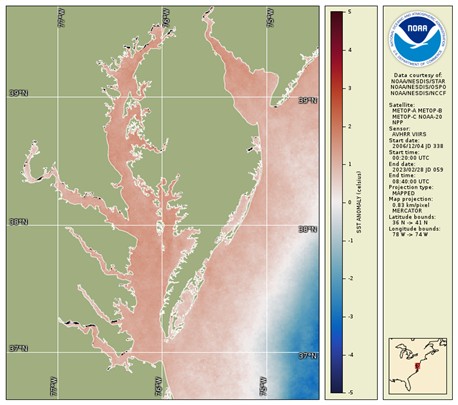
From crab boats to cargo ships to the bustle of Ocean City’s boardwalk, Maryland’s economic prosperity is closely tied to its coast. However, managing this
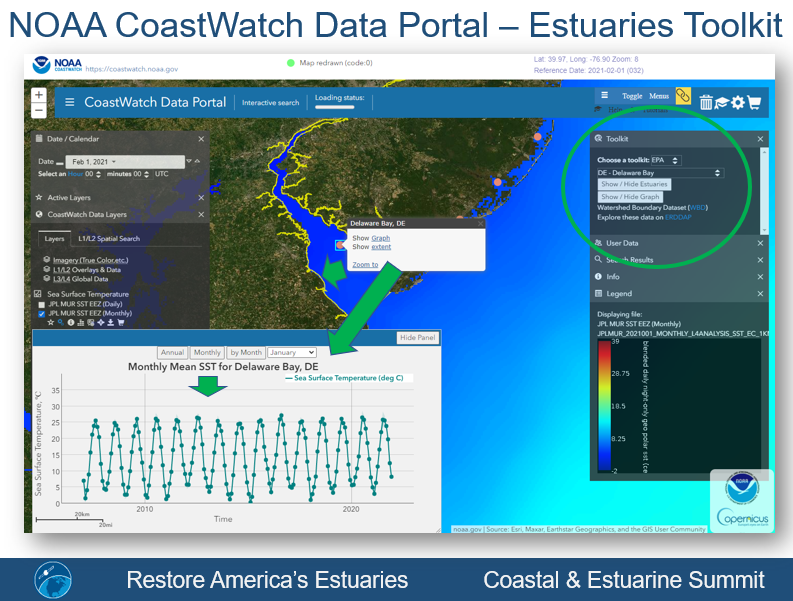
Figure: Satellite-based temperature indicators for 84 estuaries across the United States are available from the NOAA CoastWatch Data Portal. Displayed is monthly mean sea surface
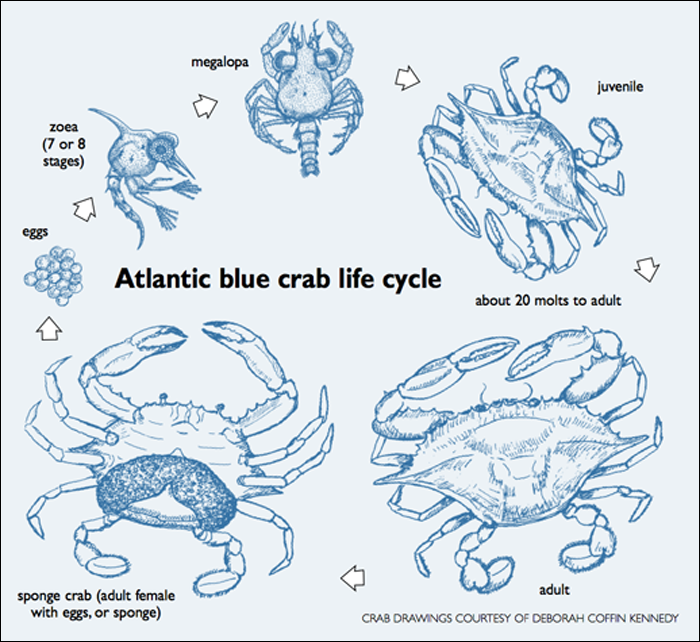
The Chesapeake Bay Stock Assessment Committee held a Blue Crab Data Workshop from Dec 5-7 to review sources of environmental and biological data that may help model the blue crab population for improving the management of this important marine resource and iconic Chesapeake Bay delicacy. Ron Vogel, ESSIC/CISESS senior faculty specialist, participated in the workshop as a subject matter expert on environmental data sources from satellites to be used in the modeling research.
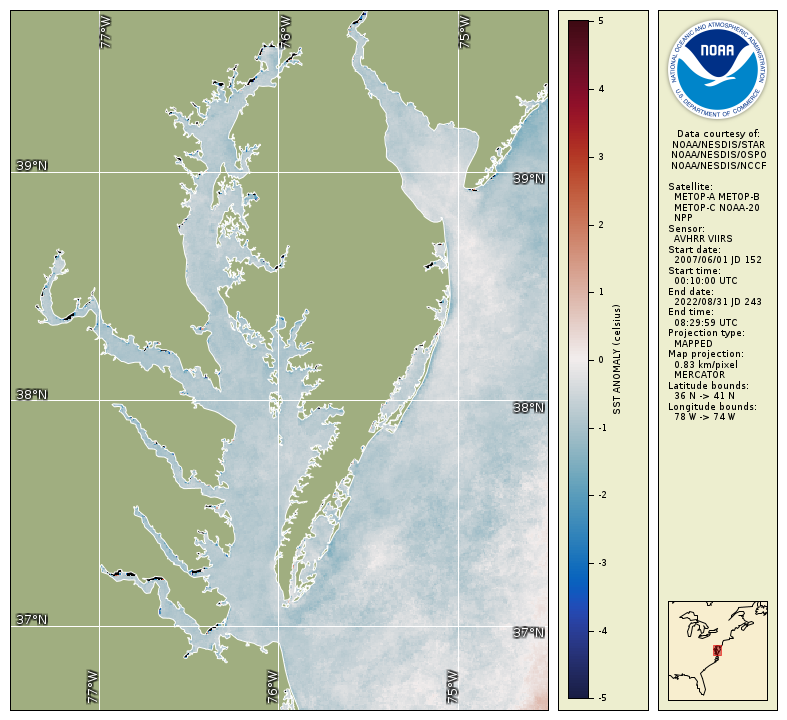
The Virginian-Pilot featured a news article on November 5 highlighting a NOAA report containing an operational satellite data product from ESSIC/CISESS Senior Faculty Specialist Ron Vogel. The report, Synthesis of Environmental Impacts on Key Fishery Resources in the Chesapeake Bay, is released seasonally by the NOAA Chesapeake Bay Office and is used by regional fishery managers to help guide management decisions.
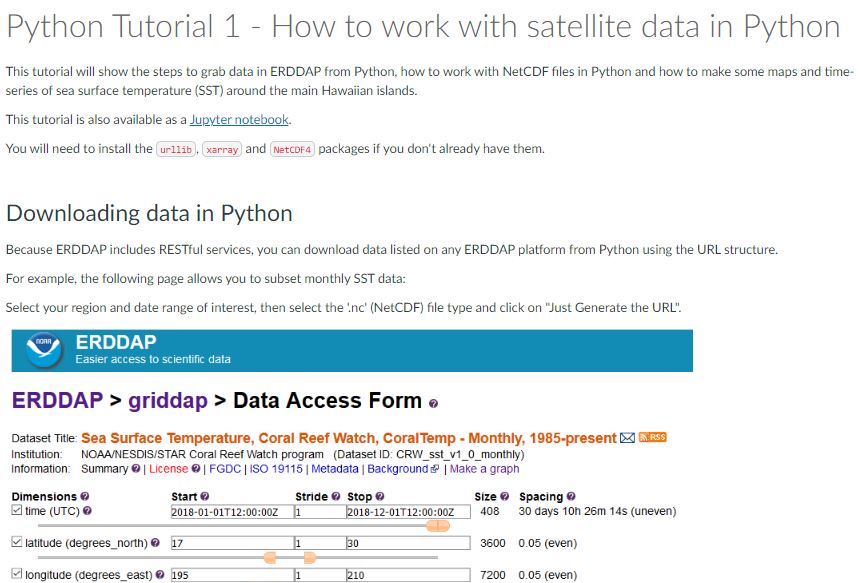
ESSIC/CISESS Scientists Melanie Abecassis and Ronal Vogel received the NESDIS Collaboration Awards for their contributions as part of a team who created new and upgraded existing content exploiting multimedia, and pivoted the CoastWatch Satellite Course to a virtual environment, hosting educational content on CANVAS at UMD/CISESS.
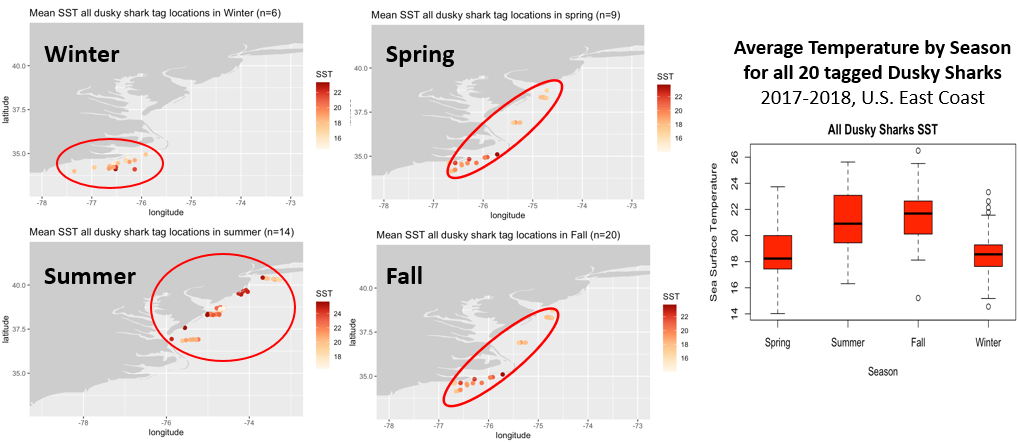
Ron Vogel, ESSIC/CISESS Senior Faculty Specialist, and Melanie Abecassis, ESSIC/CISESS Assistant Research Scientist, designed and taught a specially tailored NOAA CoastWatch satellite training class for the fisheries research community. The fishery researchers use tagged fish to understand population dynamics and ecosystem change; however, use of satellite data in this research is still somewhat limited. In order to fill this gap, the class featured satellite parameters that are underutilized in this research but have been identified by the fisheries community as an area for research growth, such as satellite-derived seascapes, geostrophic currents, sea surface height anomaly and salinity.
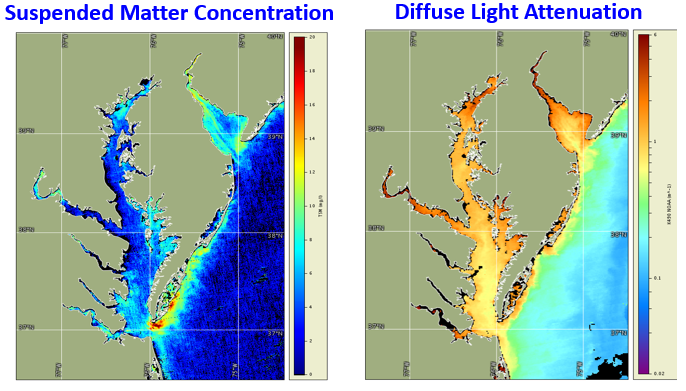
Ron Vogel, ESSIC/CISESS Senior Faculty Specialist, served as a subject matter expert at a scientific advisory panel of the Chesapeake Bay Program (CBP), the EPA-led partnership to restore a healthy Chesapeake Bay. The panel sought to advance the CBP’s current water quality data monitoring program to include new technologies such as satellites to improve its water quality assessments. Vogel outlined the current state of the science of satellite data products available for water quality analysis, including surface water light attenuation and suspended matter concentration.
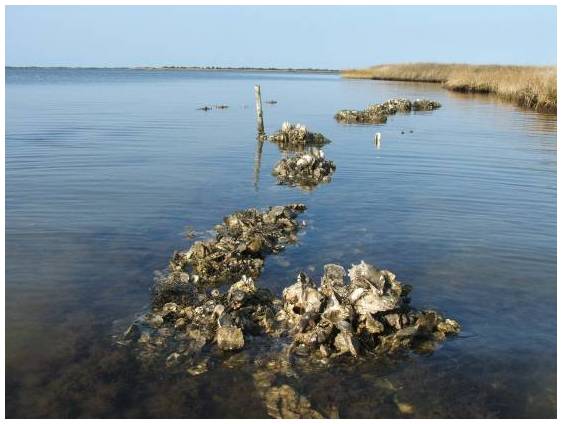
Ron Vogel, ESSIC senior faculty specialist, recently co-authored a NOAA Technical Memorandum with colleagues from NOAA’s National Marine Fisheries Service, titled “Using Satellite-Derived Total Suspended Matter Data to Evaluate the Impacts of Tributary-Scale Oyster Restoration on Water Clarity.” In the study, the team sought to explore whether large-scale oyster restoration in the Chesapeake Bay, on the order of 100s of acres, can produce improvements in water clarity that are measurable, and whether satellites can be a tool to help measure that change.
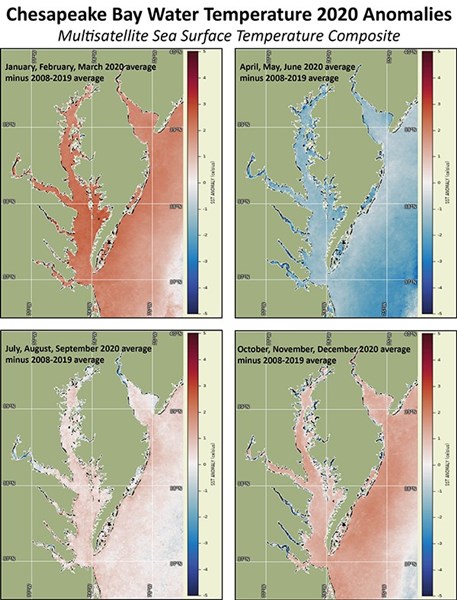
ESSIC/CISESS Senior Faculty Specialist Ron Vogel, Operations Manager for the East Coast Node, was recently recognized and highly praised for his contributions to the NOAA Chesapeake Bay Office to identify satellite derived products that support habitat and fisheries management applications.